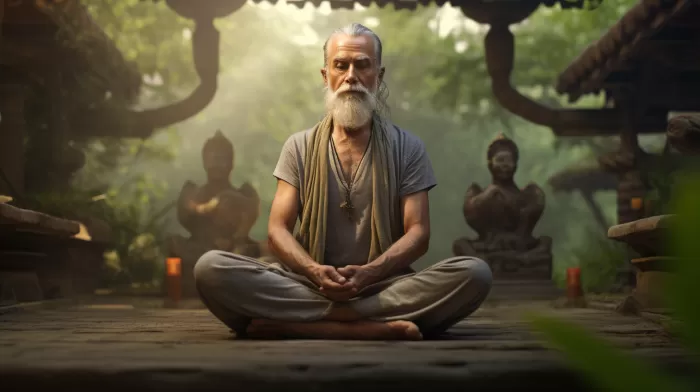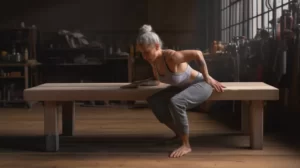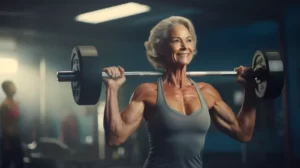Yoga has long been known for its numerous health benefits, and a recent study from Indiana University showed that older war veterans who had experienced a stroke could significantly improve their balance and endurance through simple, modified yoga exercises. In this pilot study, 20 participants took part in two hour-long yoga sessions per week for two months. By the end of this period, the veterans’ stability improved by 17%, and there was a 34% improvement in their balance. So, how exactly can seniors, especially veterans, benefit from practicing yoga, and what does this entail?
Modified Poses for Success
In the study, the yoga instructor provided modified poses to suit the abilities of older veterans. The idea behind these modifications was to help the participants feel successful from day one in order to inspire them to continue the practice. According to the lead researcher, Arlene A. Schmid, the veterans were enthusiastic about the yoga sessions, often asking for the classes to continue or for instruction on how to practice the poses at home. This enthusiasm can be attributed to their desire to further improve upon the progress they made over the two-month trial.
Benefits for Veterans and Senior Citizens
Practicing yoga can offer numerous physical and mental health benefits for older veterans and senior citizens, some of which include:
- Improved Strength and Flexibility: As we age, our muscle mass decreases, and our joints become less flexible, leading to a decrease in our range of motion. Yoga gently stretches our muscles and joints, enhancing overall mobility and flexibility.
-
Better Balance: Older individuals are generally at a greater risk of falls due to decreased balance. Through practicing various yoga poses, seniors can improve their balance and stability, thus reducing the risk of falls and subsequent injuries.
-
Increased Bone Density: Weight-bearing yoga poses promote bone strength and density, which is especially important for seniors, who are at an increased risk of suffering from ailments such as osteoporosis.
-
Reduced Anxiety and Depression: A regular yoga practice can significantly reduce anxiety and depression, as well as improve overall mental health in seniors. This can be particularly beneficial for older veterans who may have experienced traumatic events in their past that continue to affect their mental well-being.
-
Pain Management: Chronic pain can be a significant problem for seniors, particularly those that have experienced injuries or surgeries. Yoga can help alleviate pain and improve overall quality of life through its focus on mindfulness, breathing exercises, and gentle physical movements.
-
Improved Sleep: Poor sleep quality is a common issue for seniors, and yoga can help promote relaxation and better sleep by engaging the parasympathetic nervous system, which is responsible for rest and digestion, while reducing stress hormone levels.
Tips for Starting a Yoga Practice
If you or someone you know is an older individual or a veteran looking to start a yoga practice, here are some tips to get started:
- Find a qualified instructor: To ensure the best results from practicing yoga, it’s crucial to find a qualified instructor, preferably one experienced in working with seniors or older veterans. This can make all the difference in ensuring proper alignment, safety, and enjoyment during practice.
-
Choose a style that suits you: Many different styles of yoga exist, so it’s essential to find one that aligns with your needs and goals. Gentle, restorative, or chair yoga can be particularly beneficial for seniors and older veterans. These styles focus on stretching, balance, and relaxation while accommodating various ability levels.
-
Know your limits: Listening to your body and knowing your limits is crucial in any physical activity, but especially in yoga. If you ever experience pain or discomfort during your practice, it’s essential to stop and communicate this to your instructor.
-
Use props: Props such as blocks, straps, and bolsters can support you in maintaining proper alignment and make it easier for you to get into and hold poses.
-
Be patient: Developing flexibility, strength, and balance takes time and dedication. It’s essential to remain patient and give yourself the time to progress at your pace.
Yoga provides numerous physical and mental health benefits for older individuals and veterans by promoting strength, flexibility, balance, and overall well-being. By seeking guidance from a qualified instructor and embracing modified poses tailored to suit your abilities, you can enjoy the numerous benefits yoga has to offer, no matter your age or experience level.



